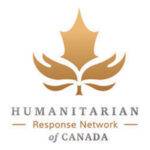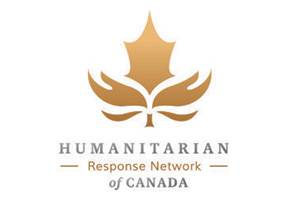
Website Humanitarian Response Network of Canada (HRN)
Cooperation Canada hosts the HRN (the Humanitarian response network)
Terms of Reference
Capacity Strengthening Assessment Consultant
About the Humanitarian Response Network of Canada (HRN)
Since 2017, Cooperation Canada is the permanent host of the Humanitarian Response Network of Canada (HRN). This network of humanitarian organizations, which was originally created in 1999 has grown over nearly two decades and now includes a diverse set of 47+ agencies. The common thread is that all member agencies are committed in some way to alleviating the suffering of people affected by disasters and complex emergencies in accordance with agreed humanitarian principles and standards, as well as Canadian values and shared learning acquired in the spirit of cooperation and commitment to effective emergency response.
Summary
- Purpose: Conduct an assessment of capacity strengthening needs and priorities for HRN members, and develop a Capacity Building Strategy that includes varied and targeted learning opportunities to meet member needs.
- Audience: Members of the HRN
- Reports to: The HRN Manager
- Timeframe:
-
- Preferred start date September 1st, 2025, until December 23rd, 2025.
- Proposals will be accepted until May 30th at midnight EST.
- Estimation of the cost: Total budget should not exceed $14,000 CAD.
-
- This is based on an expected workload of 20-25 days including design, assessment, reporting, and writing of capacity building strategy.
- Methodology summary: Desk review, interviews, workshop discussions, surveys.
- Location: Home-based.
Background:
According to the 2024-2029 Strategic plan, the HRN will “provide learning opportunities that foster continuous improvement, advancement, and innovation.”
HRN members value opportunities for learning and training about innovations in humanitarian action and to advance knowledge on best practices and more impactful approaches. Learning will be advanced through varied modalities tailored to different learning communities within HRN, including individuals new to the humanitarian sector and senior leaders, in a diversity of locations. The HRN is seeking to increase knowledge, professional and technical capacity on gender inclusive humanitarian policy and practice among the Canadian humanitarian community, and through the consultancy to assess knowledge and training needs and create a learning strategy to meet diverse member needs.
Finally, the HRN’s approach to learning has the potential to include opportunities for collaboration with educational institutions and platforms in Canada and globally, making existing learning opportunities more accessible to HRN members and avoiding duplication of efforts with other actors.
Deliverables
With the overall goal of providing learning opportunities that foster continuous improvement, advancement, and innovation, the Consultant will:
- Conduct an assessment of training needs and priorities (including targeted audience – in Canada and overseas, and delivery methodology – online, hybrid, synchronous, asynchronous, regular, temporary, etc.)
- The network includes 47+ member organizations across Canada and with varying realities, capacities and needs. All members should be included in this assessment through group and individual interviews as well as surveys. Consultation of external parties providing training in the sector, and HRN collaborators should also be included in the methodology.
- Develop a Capacity Building Strategy that includes varied and targeted learning opportunities to meet member needs. The Capacity Building Strategy should:
- Include a diversified offer of trainings that can cater to a wide range of members of various sizes, mandates and locations, and within each organization, needs that may be specific to humanitarian staff with various levels of responsibility (including HQ and country level staff).
- Be designed to:
- increase member participation in training courses by proposing pedagogical models adapted to the topics covered and the audience targeted,
- identify any training that can be found internally to the network, where some members could offer their training capacity to other HRN members,
- identify training suppliers, including training platforms, that could meet some of the training requirements through an agreement with the HRN, and
- include relevant costs where applicable (ex. of learning platforms)
Roles and Responsibilities
The Consultant will:
- design and conduct a capacity building assessment of the HRN membership
- compile assessment results and develop recommendations to guide the HRN training strategy for the next 5 years
- develop a capacity building strategy for the HRN members which would include:
- Detailed capacity building topics and objectives
- Suggested audience (roles, country office or headquarters, etc.)
- Level of knowledge required (basic, intermediate, advanced), and number of people/organizations likely to join such trainings
- Suggested format of capacity building (timing, modality – online, hybrid, in-person)
- Capacity building that can be sourced internally to the network (including peer-to-peer learning)
- Training suppliers most likely to be able to offer the identified trainings, including an analysis of training platforms
- A suggested calendar of trainings over the 3-year grant, within the training budget
- Present the draft assessment report to the HRN Executive Committe (ExCom) to collect direction and recommendations before finalization
- Present the main findings and an executive summary of the strategy to the HRN members
- Share raw data with the HRN
The HRN Manager will:
- support the consultant(s) in the development and the implementation of the deliverables
- provide general information and give access to required documents and contacts
- facilitate the planning of a workshop with key informants
- consolidate the comments on the review of the draft report
- approve the final products (report and recommendations)
- facilitate dissemination amongst the executive committee and HRN members.
The HRN Executive Committee will:
- Provide general inputs for the assessment and strategy development
- Review draft assessment report and proposed capacity building strategy
Selection Process:
As the host of the HRN, Cooperation Canada is committed to anti-racism, equity, diversity, inclusion and justice (AEDIJ). Inclusive procurement considerations must be included in selection criteria for purchasing with the goal of providing equitable opportunities for vendors of all sizes and backgrounds, including Black, Indigenous, and people of colour (BIPOC)-owned vendors, as well as vendors representing diverse gender identities and abilities. Through a holistic approach combining this policy and the principles of the HRN, here is a summary of the Selection Criteria:
- Quality of proposed work structure describing the key elements of the approach that would be employed by the consultant in undertaking this project (40%)
- Cost (25%)
- Relevant experience (20%)
- Experience conducting and leading capacity strengthening activities, needs assessments, and strategy development.
- Knowledge of international humanitarian work, experience in international cooperation is an asset.
- Proven track record of conducting quantitative and qualitative assessments.
- Excellent analytical and writing skills.
- Excellent written and spoken English and/or French.
- Excellent computer skills and use of collaborative online applications (i.e. Zoom, Teams) and other communication tools (I.e. Microsoft 365, Google Drive);
- Inclusion, diversity, environmental considerations, and fair labor practices (15%)
- When we assess, we prioritize both equity-seeking group owned or led consultancies. You are also invited to include information on how these considerations would inform the way you would implement this project in your demonstration of interest.
Proposal Guidelines
In a spirit of flexibility and openness to all forms of expression, you are invited to share your interest through the format of your choice, including but not limited to a letter of interest (e.g. CV, portfolio, video, spoken submission, etc.). You must include at least the following elements:
- Proposed approach on how the work will be conducted, including:
- Proposed timeline and availability for deliverables
- Proposed methodology
- Number of days suggested for the entire consultancy, detailing assessment timelines, reporting, and writing of proposed capacity building strategy
- Demonstration of interest:
- Who you are – tell us a little about yourself!
- The reasons why you want this consultancy
- An overview of your related experiences and/or examples of past work
- Financial proposal: A detailed breakdown of expected costs, with an explanation of itemized fees. Please keep in mind our maximum budget is $14,000. We are hoping to work with you on finding what is possible within these parameters. *Please note that all proposals should include clear pricing. All costs must be itemized to include an explanation of all fees and costs. All costs included in the proposals must include any outsourced or contracted work.
Application Process
Interested parties should submit their application materials to: [email protected] by midnight (EST) on May 30th , 2025. We accept applications in English or French. *Each member of the consultancy team will have to sign Cooperation Canada code of conduct.
Clarification of terms and conditions of the RFP document and all other inquiries shall be directed to: [email protected]
To apply for this job email your details to arow@cooperation.ca

